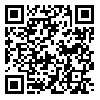Volume 5, Issue 3 (2025)
jpt 2025, 5(3): 1001-1025 |
Back to browse issues page
Download citation:
BibTeX | RIS | EndNote | Medlars | ProCite | Reference Manager | RefWorks
Send citation to:



BibTeX | RIS | EndNote | Medlars | ProCite | Reference Manager | RefWorks
Send citation to:
Ghadiri H. The Distinction between Minimal Concept and Robust Concept in Religious Language. jpt 2025; 5 (3) :1001-1025
URL: http://jpt.modares.ac.ir/article-34-80366-en.html
URL: http://jpt.modares.ac.ir/article-34-80366-en.html
Department of Philosophy of Religion, Faculty of Philosophy, University of Religions and Denominations, Qom, Iran , hamed0ghadiri@gmail.com
Abstract: (536 Views)
The semantics of religious language faces the question of how to understand the application of terms to God in a way that avoids both anthropomorphism and impossibility of knowing the divine. This article draws on Michael Lynch’s distinction between minimal and robust concepts and offers two possible solutions to this problem: (1) linguistic usage in the human context is based on minimal concepts, while usage in the divine context is based on robust concepts; (2) in both contexts, usage is grounded in robust concepts, but the divine usage is characterized by a higher degree of robustness. The article proceeds to critically assess these solutions and argues that, although the distinction between minimal and robust concepts helps to explain the difference between human and divine usage of language, it still encounters fundamental difficulties in specifying the metaphysical implications of the concepts ascribed to God.
Keywords: Religious Language, Metaphysical Pluralism, Michael Lynch, Relativistic Kantianism, Minimal Concept, Robust Concept
Article Type: Original Research |
Subject:
Philosophy of Language (Analytical)
Received: 2025/04/15 | Accepted: 2025/05/22 | Published: 2025/03/30
Received: 2025/04/15 | Accepted: 2025/05/22 | Published: 2025/03/30
Send email to the article author
| Rights and permissions | |
 |
This work is licensed under a Creative Commons Attribution-NonCommercial 4.0 International License. |





